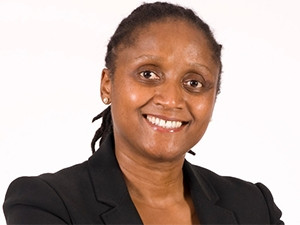
Analysts believe Neotel is a good strategic fit for Liquid Telecom. This after the company yesterday announced that it and Royal Bafokeng Holdings (RBH) had entered into an agreement to acquire Neotel for R6.55 billion.
Ever since Vodacom called off its plans to buy Neotel earlier this year, the industry has been speculating about who Neotel's next suitor would be. In May rumours surfaced that Econet was looking to buy Neotel - something that it has now confirmed through its subsidiary Liquid Telecom.
"Neotel is an instrument in achieving Liquid's pan-African strategy," according to Africa Analysis MD, Dobek Pater.
Ovum senior analyst, Richard Hurst, believes Liquid Telecoms is a good suitor for Neotel, as it has a similar business. He says Neotel also fits into Liquid Telecom's vision to target and serve enterprise and wholesale customers across the region.
"The acquisition of Neotel will give Liquid access to a new and large market of enterprise customers in South Africa," says Hurst.
Diversified telecommunications group, Econet, was founded in 1993 by Strive Masiyiwa - Zimbabwe's richest man - and has operations and investments across Africa and the globe. Liquid Telecom is majority owned by Econet and its cross-border fibre backbone network currently stretches tens of thousands of kilometres from Rwanda to South Africa, with further expansion planned into new markets. Neotel's national fibre network, partly leased, has a backbone of over 27 000km of fibre linking cities and towns and all 5 submarine cables connecting South Africa.
Liquid Telecom says the deal will create the largest pan-African broadband network and through a single access point, businesses will be able to access 40 000km of cross-border, metro and access fibre networks.

Pater says Liquid Telecom has been expanding its operations across Africa both geographically and in terms of expansions into access infrastructure, provision of data centre services, and into retail services through sister companies and partners. Liquid has also been expanding its presence in SA.
"Neotel is active in all these areas and would allow Liquid to quickly scale its operations in the country. It would provide Liquid with a very good fixed network footprint, as well as spectrum which Liquid could use for future expansion of services," says Pater.
IDC research manager for IT services Africa, Jon Tullett, agrees that the deal is a good fit for all involved.
"Neotel's business plan was to get bought. More relevant is Liquid's plan, where the additional capacity dovetails well with their expansion plans, in terms of infrastructure and their business relationships," says Tullett.
Liquid Telecom CEO, Nic Rudnick, says that the company plans to increase investments into Neotel "to cater for rapidly accelerating mobile and enterprise traffic, enabling us to launch exciting new products and services".
"Liquid Telecom has developed a solid base of skills around being able to deliver enterprise services. In addition Liquid Telecom has gained favour from investors over the past 18 months with some successful rounds of funding in the bag and designs on listing on the London Stock Exchange," adds Hurst.
The deal
Neotel's major shareholder Tata Communications and minority shareholders led by Nexus Connexion have agreed to the R6.5 billion deal which is still subject to the approval of South African regulatory authorities. The deal is expected to be completed later this year and includes a 30% stake in Neotel being acquired by South African investment group, RBH.

"I think this empowerment group has had a strong track record and will also bring some local weight to the operation," says Hurst.
RBH manages the Royal Bafokeng Nation's commercial assets through the Royal Bafokeng Nation Development Trust (RBNDT) "to ensure long-term sustainable returns for the benefit of current and future generations of the Bafokeng people". The majority of RBH's investments are in the financial and mining space and as at 31 December 2015, RBH's net asset value was R25 billion.
Royal Bafokeng Holdings CEO, Albertinah Kekana, says the deal represents RBH's long-term investment approach and its commitment to the African growth story.
"This transaction is part of our diversification strategy and its focus on infrastructure is in line with our objective to invest in high growth sectors."
Vodacom's loss
Neotel's previous suitor, Vodacom, came up against a lot of resistance when it tried to buy Neotel. The original R7 billion deal had been on the cards since May 2014, but was met with fierce opposition from rival telco operators and other industry players, mostly because of the potential competitive consequences of the transfer of Neotel's much sought-after radio frequency spectrum. Vodacom and Neotel tried to rework the deal and remove the spectrum option, but ultimately called it quits in March.
Analysts believe that Liquid Telecom will likely not meet with the same resistance when it heads to competition authorities.

"The fact that this is a new player seeking to enter the South African market there should be fewer regulatory hurdles for the player to overcome as opposed to the scenario where an existing player sought to acquire the assets," says Hurst.
Tullett also does not anticipate any regulatory obstruction and believes it's less likely that the local operators will move to block Liquid like they did with Vodacom which "would have had a much more significant competitive impact".
"From the perspective of other operators in the market, Liquid is better suited as it represents less of a potential threat to them than Vodacom did," says Pater.
"Liquid does not have the retail market presence in SA that Vodacom has, nor is it a mobile operator (at present). It is also a small wholesale player in the local market at present," he adds.
"The spectrum issue may still be a sticking point, but it shouldn't be a major item, when considering the buyer. I think that generally we will see a positive reaction to the deal. Operators may even see an opportunity to partner with the new entrant for services such as cloud and access to the data centre," says Hurst.
"In a nutshell, this is the transfer of infrastructure to an entity which will put it to use to grow capacity and service. On the face of it, that's a positive development for everyone concerned and the market as a whole. More competition is good, more efficient use of installed infrastructure is good, and less uncertainty over the future of Neotel is also good," adds Tullett.
Share